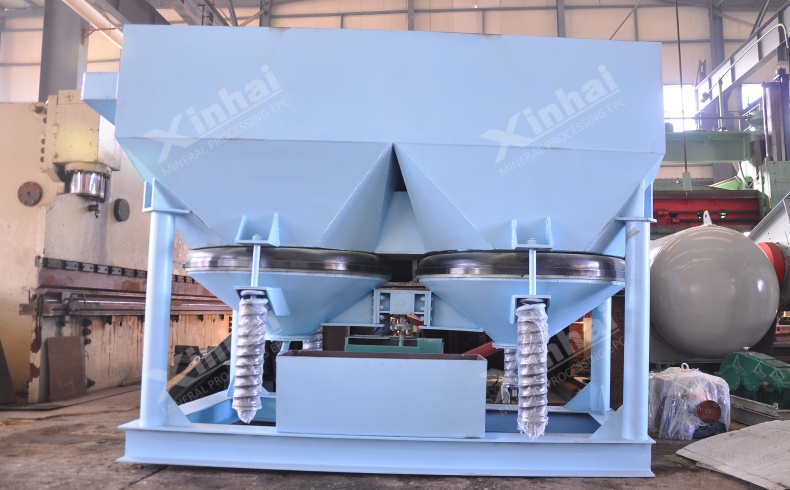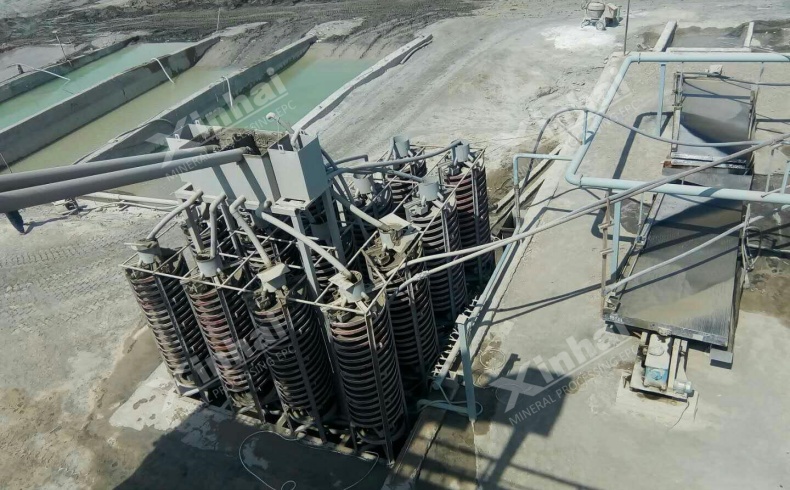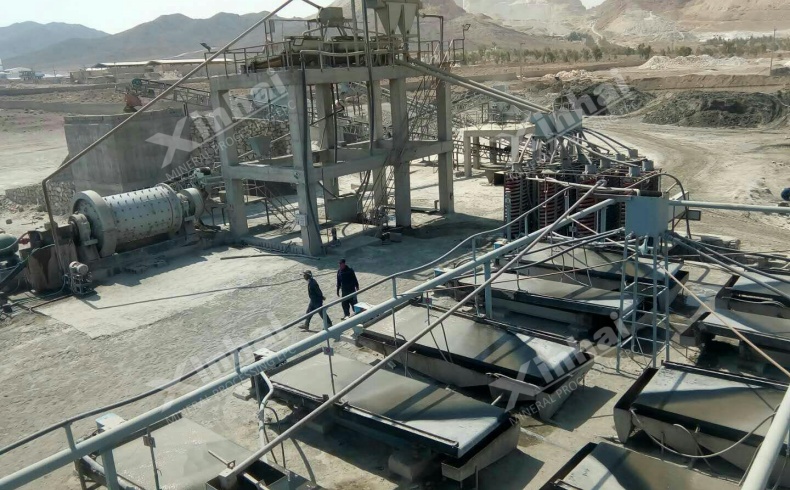If you want to know more information (such as product/process price, etc.), please contact us 24-hour telephone
Chrome gravity separation is a fundamental process in the mining and beneficiation of chromite ore. As chromite deposits vary in mineral composition, liberation characteristics, and particle size distribution, selecting the right gravity separation equipment is critical to achieving high recovery rates and optimal concentrate grades. Among the most widely used technologies are jigs, spiral chutes, and shaking tables. This article delves into the principles, applications, and advantages of these three key pieces of equipment, providing insights into their role in modern chromite processing.
Principle of Operation
Jigs are density-based separators that utilize pulsating water flow to stratify particles according to their specific gravity. In a jigging process, chromite particles (with a higher density of ~4.2–4.8 g/cm³) settle faster than lighter gangue minerals (e.g., silicates at ~2.6 g/cm³). The pulsation creates alternating layers of heavy and light materials, allowing for efficient separation.

Design and Types
Diaphragm Jigs: Use a rubber diaphragm to generate pulsations, ideal for coarse to medium-sized particles (0.5–25 mm).
Air-Pulsed Jigs: Employ compressed air for pulsation, offering better control for fine particle separation.
Applications in Chrome Processing
Jigs excel in processing coarse chromite ore, particularly in primary recovery stages. They are cost-effective for high-capacity operations and can handle large feed volumes with minimal water consumption.
Advantages
High throughput for coarse particles.
Low operational costs.
Tolerance to variable feed grades.
Limitations
Less effective for fine particles (<0.5 mm).
Requires regular maintenance to manage wear from abrasive chromite.
Principle of Operation
Spiral chutes separate minerals based on density, particle size, and shape through a combination of centrifugal force, gravity, and fluid dynamics. As the slurry flows down a helical trough, heavier chromite particles migrate toward the inner edge, while lighter gangue minerals remain on the outer periphery.
Design Features
Constructed from fiberglass or polyurethane for durability.
Adjustable pitch and trough profiles to optimize separation.
Applications in Chrome Processing
Spiral chutes are ideal for processing medium to fine chromite particles (0.1–2 mm). They are commonly used in secondary concentration stages or for scavenging chromite from tailings.
Advantages
No moving parts, reducing maintenance needs.
Compact design with low energy consumption.
Effective for processing large volumes of fine material.
Limitations
Sensitive to feed density and particle size distribution.
Limited ability to handle ultra-fine particles (<0.075 mm).

Principle of Operation
Shaking tables use a combination of lateral shaking motion and flowing water to separate particles based on density. The deck’s riffles create turbulence, causing denser chromite particles to settle into grooves, while lighter materials are washed away.
Design and Configuration
Deck Surface: Typically made of fiberglass or laminate, with adjustable riffles.
Stroke and Frequency: Customizable to suit particle size and density differences.
Applications in Chrome Processing
Shaking tables are highly effective for fine chromite particles (0.02–0.5 mm), often used in final cleaning stages to produce high-grade concentrates.
Advantages
Exceptional precision for fine particle separation.
Flexibility in adjusting operational parameters.
Produces high-purity chromite concentrates (Cr₂O₃ >48%).
Limitations
Low throughput compared to jigs and spirals.
Requires skilled operators to optimize performance.

| Parameter | Jigs | Spiral Chutes | Shaking Tables |
|---|---|---|---|
| Particle Size | Coarse (0.5–25 mm) | Medium-fine (0.1–2 mm) | Fine (0.02–0.5 mm) |
| Capacity | High (50–100 t/h) | Moderate (10–30 t/h) | Low (1–5 t/h) |
| Energy Use | Moderate | Low | High |
| Concentrate Grade | Moderate (Cr₂O₃ 40–45%) | Good (Cr₂O₃ 42–47%) | Excellent (Cr₂O₃ 48–52%) |
| Cost | Low capital, moderate O&M | Low capital and O&M | High capital, skilled labor |
Integrating Equipment for Optimal Chrome Recovery
A well-designed chromite beneficiation plant often combines multiple gravity separation units:
1. Primary Stage: Jigs for coarse particle recovery.
2. Secondary Stage: Spiral chutes to process middlings and scavenge tailings.
3. Final Stage: Shaking tables to upgrade concentrates to marketable grades.
This multi-stage approach maximizes recovery while minimizing losses of valuable chromite.
Innovations in Chrome Gravity Separation
Recent advancements include:
Hybrid Jig-Spiral Systems: Improve recovery of fine chromite.
Automated Shaking Tables: AI-driven adjustments for consistent performance.
Eco-Friendly Designs: Reduced water consumption and recycling systems.
As a global leader in mineral processing technology, Xinhai Mining offers end-to-end solutions for chromite beneficiation. Our expertise spans:
Customized Equipment: High-efficiency jigs, spirals, and shaking tables tailored to your ore characteristics.
Turnkey Plants: From feasibility studies to commissioning, ensuring seamless project execution.
Sustainable Practices: Energy-saving designs and water recycling systems to meet environmental standards.
With over 20 years of experience in chrome gravity separation, Xinhai combines innovation with reliability to deliver measurable results. Contact us today to optimize your chromite recovery and elevate your operation’s profitability.
Xinhai Mining – Where Technology Meets Excellence.